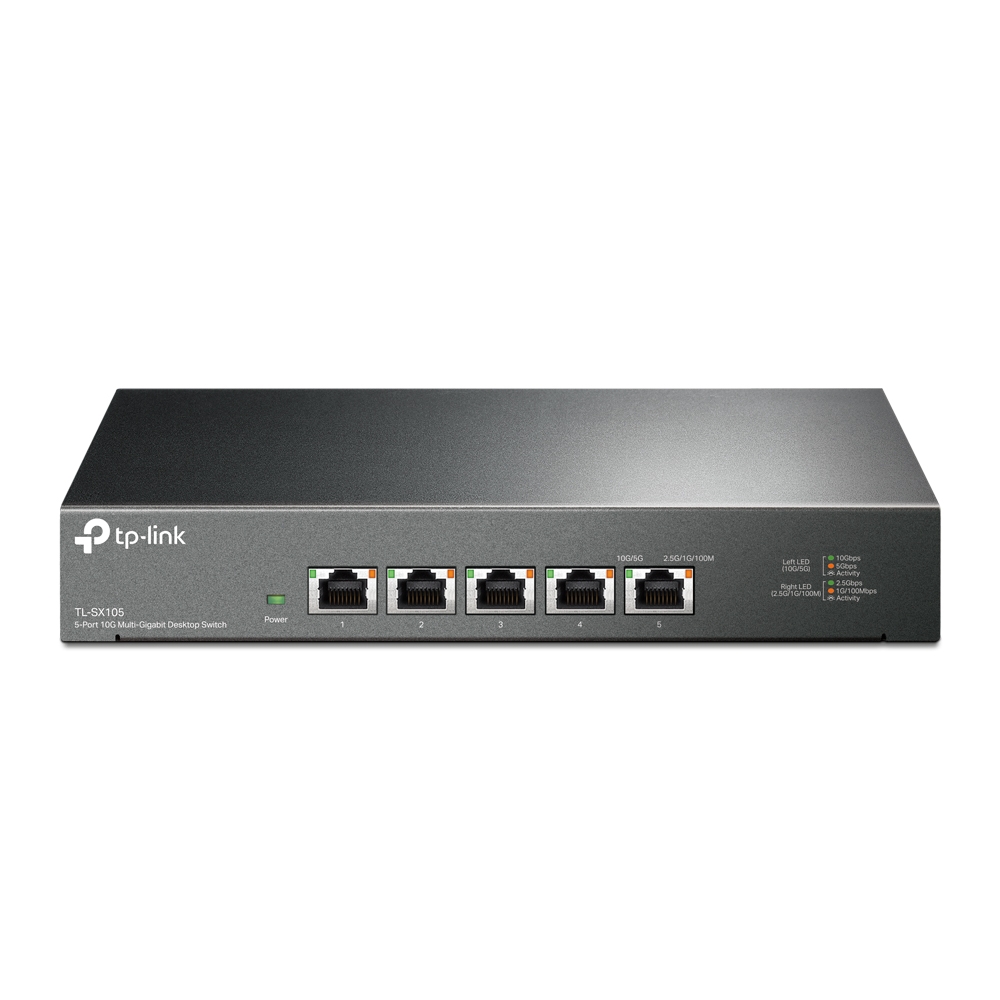I have a fundamental question that I think network experts can answer - it takes some background, so apologies for length...
I have a home media server consisting of a Windows Server 2012R2 on a basic Xeon motherboard with dual 1 Gbps RJ45 ports. I always had both connected - they each have their own IP address xxx.xxx.xxx.251 and xxx.xxx.xxx.252. There's no teaming or other specialized configuration on either the server or the switch ports it's connected to.
From a media server standpoint, there's plenty of bandwidth - I can run 3 concurrent 4k streams at 100 Mbps without issue. I'm doing a significant amount of re-encoding videos which typically range from 10 GB to 70 GB. Over my existing network, I typically see speeds of 115 MB/s - largely maxing out the 1 Gbps ethernet connection. I'm looking for a faster connection and 2.5 Gbps seems doable without significant expense.
I was wondering how I could add a 2.5 Gbps adapter to the server so that the two PCs I typically use could transfer these large files faster. I know I'd need a switch with 2.5 Gbps ports as well.
I was trying to figure out I could direct these PC-Server large file transfers to the 2.5 Gbps port that I would add to the server.
I typically connect to the server with the server name, however, I tested setting up two shared folders on a PC with the two independent IP addresses (.251 and .252). What I found was that it didn't matter which folder I copied to, the traffic balanced out over the two server ports - my PC ethernet would be running at 990 MB/s and the two server ports would be running at 440-450 MB/s.
The question (FINALLY!) is if add a 2.5 Gbps router (the two PC's already have 2.5 Gbps ethernet), would I get roughly 2 Gbps transfers to the server since it seems to be splitting the inbound data over the two 1 Gbps server ethernet ports???
There is virtually no other traffic taking place when I'm doing this stuff so 100% of network/switch bandwidth is available when I'm making file transfers.
Thanks in advance for any thoughts. I've already tested throughput capability of the RAID 6 array and found it to support sustained writes approaching 400 MB/s - it appears the 1 Gbps network is the only bottleneck preventing me from doubling my transfer speed.
I have a home media server consisting of a Windows Server 2012R2 on a basic Xeon motherboard with dual 1 Gbps RJ45 ports. I always had both connected - they each have their own IP address xxx.xxx.xxx.251 and xxx.xxx.xxx.252. There's no teaming or other specialized configuration on either the server or the switch ports it's connected to.
From a media server standpoint, there's plenty of bandwidth - I can run 3 concurrent 4k streams at 100 Mbps without issue. I'm doing a significant amount of re-encoding videos which typically range from 10 GB to 70 GB. Over my existing network, I typically see speeds of 115 MB/s - largely maxing out the 1 Gbps ethernet connection. I'm looking for a faster connection and 2.5 Gbps seems doable without significant expense.
I was wondering how I could add a 2.5 Gbps adapter to the server so that the two PCs I typically use could transfer these large files faster. I know I'd need a switch with 2.5 Gbps ports as well.
I was trying to figure out I could direct these PC-Server large file transfers to the 2.5 Gbps port that I would add to the server.
I typically connect to the server with the server name, however, I tested setting up two shared folders on a PC with the two independent IP addresses (.251 and .252). What I found was that it didn't matter which folder I copied to, the traffic balanced out over the two server ports - my PC ethernet would be running at 990 MB/s and the two server ports would be running at 440-450 MB/s.
The question (FINALLY!) is if add a 2.5 Gbps router (the two PC's already have 2.5 Gbps ethernet), would I get roughly 2 Gbps transfers to the server since it seems to be splitting the inbound data over the two 1 Gbps server ethernet ports???
There is virtually no other traffic taking place when I'm doing this stuff so 100% of network/switch bandwidth is available when I'm making file transfers.
Thanks in advance for any thoughts. I've already tested throughput capability of the RAID 6 array and found it to support sustained writes approaching 400 MB/s - it appears the 1 Gbps network is the only bottleneck preventing me from doubling my transfer speed.


